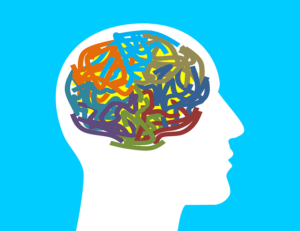Comorbid Autism Spectrum Disorder and OCD: Challenges in Diagnosis and Treatment
 Interventions shown to be highly effective in treating symptoms of autism are already limited, but the options shrink even further in the presence of anxiety comorbidities, particularly obsessive compulsive disorder (OCD).
Interventions shown to be highly effective in treating symptoms of autism are already limited, but the options shrink even further in the presence of anxiety comorbidities, particularly obsessive compulsive disorder (OCD).
Research has been focused not only on identifying a specific anxiety disorder in children and adolescents with autism, but also in distinguishing between the symptoms of each disorder and how to treat each disorder. Although cognitive behavioral therapy (CBT) with various modifications has been shown to be beneficial, the research evaluating CBT includes small populations and a variety of nonstandard modifications.
Glen Elliott, PhD, MD, chief psychiatrist and medical director of Children’s Health Council was not persuaded by the review that CBT is very effective for comorbid autism and OCD, given the small population in this review, its substantial limitations, his own limited clinical success with CBT, and the need for the patient’s willing participation in therapy.
Results from all of the studies showed at least some treatment gains, but they included only 170 participants total with substantial variation in age and severity of conditions. All participants with autism had “high-functioning” autism and an IQ above 69. Further, the studies were very heterogenous in terms of procedures, therapy modifications, and outcome measures.
“One of the requirements for diagnosis [of] OCD in non-autistic individuals is that the behavior they engage in [is] behavior they don’t want to engage in,” Dr Elliott told Psychiatry Advisor. “They [are] compelled to do it even though they don’t want to do it.”
“What they get upset about is when those behaviors are disrupted,” Dr Elliot said. He noted that their responses can range from annoyance to complete meltdowns.
“I think the motivation to do CBT would be much lower with autistic than [with] non-autistic individuals,” he said. “Most of them think, ‘Why should I give this up? It’s fun, it’s who I am, it’s what I do.’ CBT would be a hard sell since all therapy requires some agreement of ‘I have a problem I’d like to see changed.’”
If they do have repetitive behaviors they don’t enjoy, however, CBT may help them reduce those behaviors, Dr Elliott said.
Read the full article in Psychiatry Advisor.
Source: Psychiatry Advisor | Comorbid Autism Spectrum Disorder and OCD: Challenges in Diagnosis and Treatment, https://www.psychiatryadvisor.com/autism-spectrum-disorders/autism-obsessive-compulsive-disorder-diagnostic-treatment-challenges/article/761168/| retrieved April 2018
Have questions? CHC can help. To schedule an evaluation or to get advice about your child’s challenges, call or email a CHC Care Coordinator at 650.688.3625 or careteam@chconline.org





